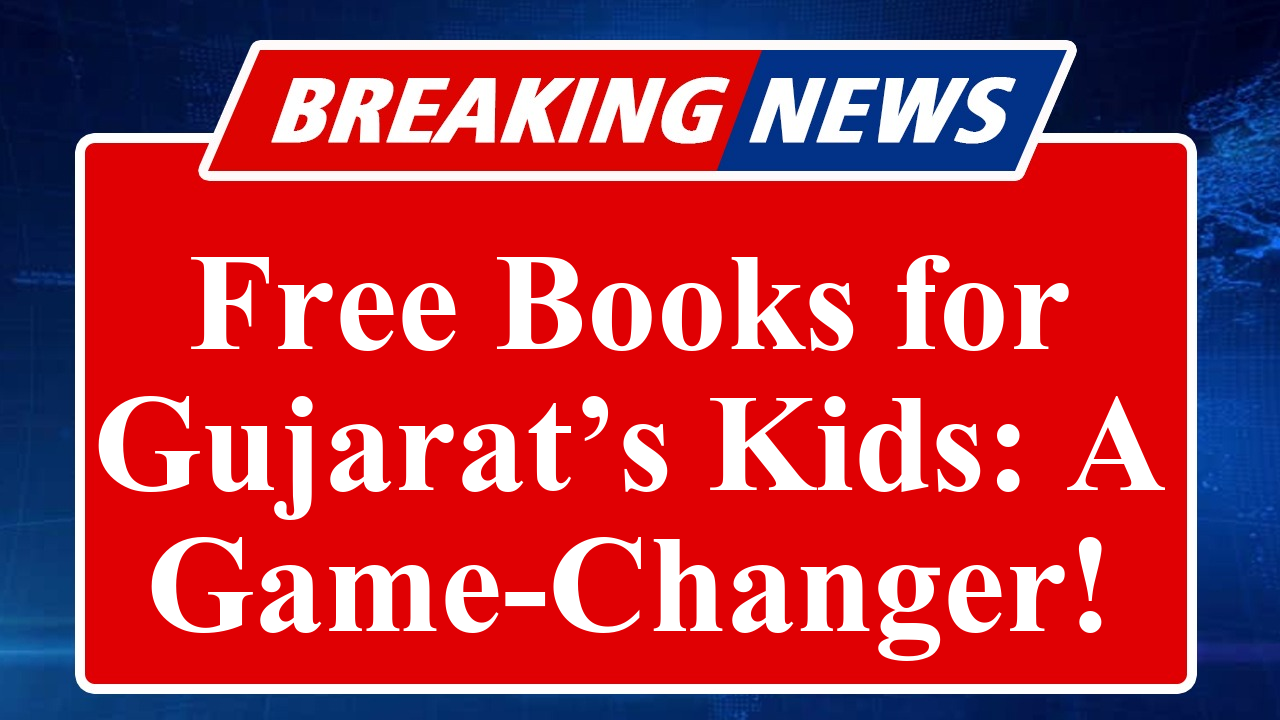Gujarat’s government has launched a transformative initiative to provide free textbooks to primary school students starting June 2025, aligning with the New Education Policy. Aimed at reducing financial burdens and enhancing access to quality education, the program will distribute updated textbooks in digital and print formats. This move is expected to benefit millions of students across the state.
Gujarat Rolls Out Free Textbooks for Primary Students
In a significant step toward making education more accessible, the Gujarat government has announced a pioneering initiative to provide free textbooks to all primary school students starting from the academic year 2025-26, commencing in June 2025. This ambitious program, aligned with the New Education Policy (NEP) 2020, seeks to alleviate the financial burden on families and ensure equitable access to quality learning resources for young students across the state.
The Gujarat Rajya Shala Pathyapustak Mandal, the state’s textbook board, will oversee the distribution of these textbooks, which will include updated content tailored to the latest curriculum guidelines. According to state education officials, the initiative will cover students from Classes 1 to 8 in both government and aided schools, impacting over 5 million children. The textbooks, available in Gujarati, English, and other regional languages like Marathi, will also be accessible in digital formats on the Gujarat Council of Educational Research and Training (GCERT) website, ensuring flexibility for students and teachers.
This move comes as part of Gujarat’s broader commitment to implementing the NEP, which emphasizes inclusive and holistic education. The updated textbooks for primary classes, including subjects like Gujarati, Mathematics, and Environmental Studies, incorporate modern pedagogical approaches, such as activity-based learning and critical thinking exercises. For instance, the Class 1 Gujarati textbook and Class 2 Mathematics textbook have been revised to include interactive elements that make learning engaging for young minds.
Education Minister Jagdish Vishwakarma stated at a press conference in Gandhinagar that the initiative aims to bridge educational disparities, particularly for economically disadvantaged families. “By providing free textbooks, we are ensuring that no child is left behind due to financial constraints. This is a step toward building a knowledge-driven society,” he said. The state has allocated approximately ₹150 crore for the program, covering printing, distribution, and digital infrastructure costs.
The Gujarat Secondary and Higher Secondary Education Board (GSEB) has also collaborated with local publishers to ensure timely availability of these textbooks. Schools are expected to receive physical copies by mid-May 2025, ahead of the academic session. Additionally, the digital versions will be hosted on the official GSEB and GCERT portals, allowing parents and students to download them free of cost. This dual-format approach addresses challenges like accessibility in remote areas and promotes the use of technology in education.
Teachers and educationists have welcomed the initiative, noting its potential to enhance learning outcomes. “Free textbooks will not only ease the financial strain on parents but also ensure uniformity in the quality of educational materials,” said Rekha Patel, a primary school teacher in Ahmedabad. However, some educators have raised concerns about the need for teacher training to effectively utilize the updated curriculum, urging the government to complement the free textbook program with professional development workshops.
The initiative has also garnered attention for its inclusivity, with textbooks available in multiple languages to cater to Gujarat’s diverse linguistic communities. For instance, Marathi-medium schools will receive updated Class 7 textbooks, while Sanskrit-medium schools will benefit from revised materials for subjects like Social Science and Sarvangi Shikshan. This multilingual approach aligns with the NEP’s emphasis on preserving regional languages while promoting academic excellence.
Parents across the state have expressed relief at the announcement. Anil Desai, a father of two from Surat, shared, “Textbooks are a significant expense every year. This initiative will allow us to focus on other educational needs, like stationery and uniforms.” The program is also expected to reduce dropout rates, particularly in rural areas, where financial constraints often force families to prioritize basic necessities over education.
To ensure the smooth implementation of the program, the state education department has set up a monitoring committee to oversee distribution and address logistical challenges. Plans are also underway to integrate feedback from teachers and parents to refine the initiative in subsequent years. With this bold step, Gujarat aims to set a precedent for other states in making education truly accessible and equitable for all.
Disclaimer: This article is based on information from official announcements by the Gujarat government, reports from the Gujarat Rajya Shala Pathyapustak Mandal, and inputs from education stakeholders. Data and statements are sourced from reliable platforms, including GSEB and GCERT websites, as of July 2025.

